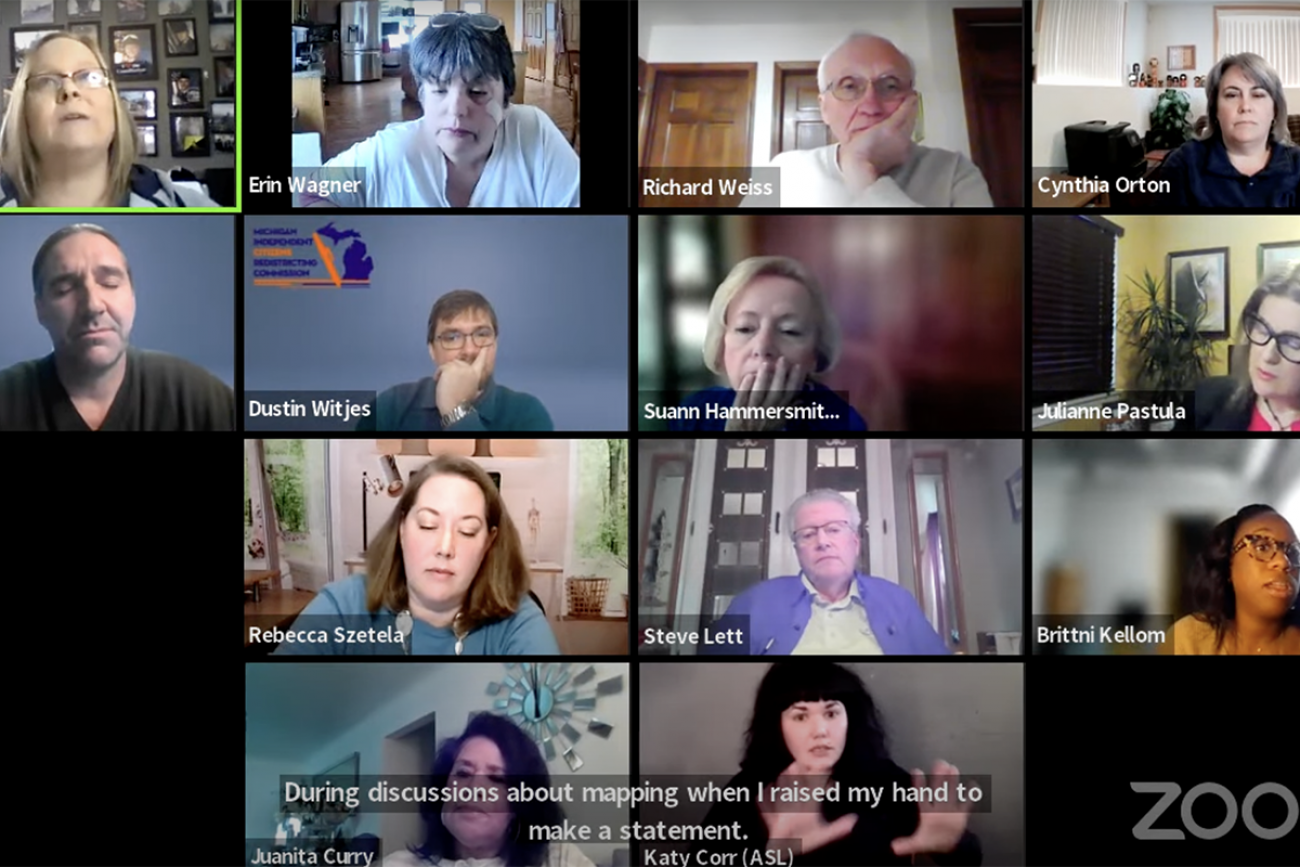A Michigan panel created to end gerrymandering is broke. Lawsuit may be next.

- Michigan’s redistricting commission says it still needs money to pay bills, defend legal challenges
- Lawmakers say Gov. Whitmer didn’t include funding in the budget
- The panel finished its legislative maps nearly a year ago. A few suits are ongoing
Michigan’s newly created independent redistricting commission is out of cash after being left out of the state budget process, and the 13-member panel isn’t ruling out a lawsuit to get more money.
The commission’s financial situation has been in limbo since the fiscal year ended Sept. 30 without approval for future funding. A subsequent meeting with state budget officials did not provide clarity, commissioner Rebecca Szetela and the group’s executive director Edward Woods said this week.
Legislative maps have been done for months, but Woods contended the commission still needs money to plan future meetings and retain legal representation for challenges to the districts.
Related:
- Slotkin-Barrett race draws big money, interest with Congress up for grabs
- Six Michigan legislative incumbents voted out so far — and it’s not even November
- In redrawn districts, Macomb once again could decide Michigan power balance
“Our desire is to work amicably with the budget office, amicably with the Legislature to resolve this,” said Woods, adding a legal challenge remains “under consideration.”
Voters approved a constitutional amendment in 2018 to create the commission to draw legislative boundaries every 10 years, ending a process that allowed the party in power in Lansing to do so for decades. That created maps so skewed toward Republicans that federal judges in 2019 called them a “political gerrymander of historical proportions.”
The amendment required the Legislature “appropriate funds sufficient to compensate the commissioners and to enable the commission to carry out its functions, operations and activities.”
Lawmakers contend they’ve met those obligations, noting in an Oct. 12 letter to Woods that the Legislature has approved funding every time it’s been included in a budget or supplemental request, totaling $13.8 million since 2019.
Additional funding wasn’t included in the governor’s budget request or a subsequent supplemental passed last month, and the commission’s first direct request for fiscal year 2023 funding came after the $76.9 billion budget had been signed, according to a letter from Senate Appropriations Chair Jim Stamas, R-Midland, and House Appropriations Chair Mary Whiteford, R-Casco Township.
Lawmakers will consider the request for additional money “in the ordinary course, consistent with the Legislature’s constitutional obligations,” Stamas and Whiteford wrote.
Because previous communications from the commission “did not identify any exigent funding circumstances, we assume there are none,” the letter concluded.
A spokesperson for State Budget Director Chris Harkins confirmed he recently met with representatives of the commission, but did not clarify the department’s position.
Commission members have met sporadically since approving congressional and state legislative political districts in late 2021.
Members have been criticized for continuing to meet and draw a salary despite, but members maintain they need to remain active while legal challenges to their work continue.
In August, the commission moved to reduce their salaries from $55,755 to $39,825.
Two lawsuits against the commission’s work remain pending in court. One challenges the population discrepancies between congressional districts, and the other claims the commission disenfranchised Black voters in Detroit.
The commission had $1.7 million left over from fiscal year 2022, but attorneys for the panel advised that the money couldn’t be carried over into work for the next budget cycle without express approval.
Commissioners still don’t have clarity on whether that money can be used, or if more is forthcoming, Woods said: “The bottom line is, we don’t know.”
David Fink, the commission’s attorney, told commissioners during a Sept. 29 meeting that the constitutional language “doesn’t make it voluntary” for the Legislature to compensate the commission, noting litigation was the next step he’d recommend if negotiations don’t pan out.
“How are you going to defend the plans if you can’t operate as a commission?” he said.
Szetela, one of the panel’s five independents, told Bridge Michigan last week she remains optimistic.
“I expect that we will be funded, it just may take a little bit of time,” she said.
See what new members are saying about why they donated to Bridge Michigan:
- “In order for this information to be accurate and unbiased it must be underwritten by its readers, not by special interests.” - Larry S.
- “Not many other media sources report on the topics Bridge does.” - Susan B.
- “Your journalism is outstanding and rare these days.” - Mark S.
If you want to ensure the future of nonpartisan, nonprofit Michigan journalism, please become a member today. You, too, will be asked why you donated and maybe we'll feature your quote next time!




